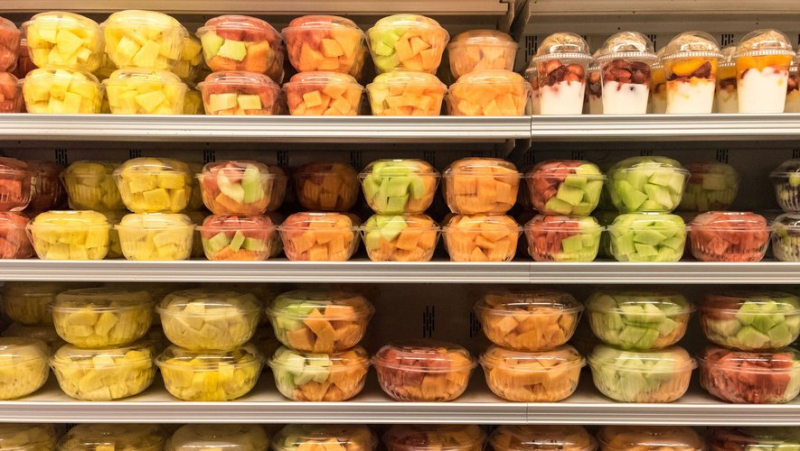Less taste and nutrients… Pre-cut fruits and vegetables in trays are not as good as you think

En barquettes, les fruits et légumes perdent leurs vitamines Juanmonino/Getty Images
Even though they are practical, the already cut zucchini, pepper and pineapple punnets are less interesting from a nutritional point of view due to the loss of vitamins. The association 60 million consumers has just highlighted what it considers to be pitfalls when choosing this type of packaging.
Zucchini tagliatelle, pineapple cubes, pepper and tomato medley, blueberry and strawberry salads… Ready-made fruits and vegetables are very practical when you rush home in the evening and have to prepare a meal pronto to satisfy hungry little stomachs. It's hard to wait when you have to trim the green beans and then wait about twenty minutes for them to cook…
For several years, distributors have found the solution with these trays in which fresh products are packaged for immediate consumption. And it’s a hit with the French. In 2022, the Union of Manufacturers of Ready-to-use Plant Products (SVFPE) indicated that already cut fruits had increased by 12% in 2022 not only in value but also in volume.
Less taste and less nutritious
But there is a nutritional catch. After analyzes carried out by the 60 million consumers association, there is a potential loss of vitamins not only at the time of cutting but also during industrial rinsing, much more intensive than that done by hand at home. Losses can be of the order of 40%, or even 50%.
Even in terms of flavors, we can ask ourselves the question of choosing this type of packaging. Because according to the consumer association, the aromatic compounds are indeed degraded during the preparation and preservation of fresh products. In short, a punnet of ready-made pineapple is less good, taste-wise, than a whole pineapple that we have taken the time to prepare.
Problem of transparency regarding the origin of food
In terms of transparency towards the consumer, we are not there either. Because “60” highlights the lack of obligation to indicate the origin of fruits and vegetables that can be consumed immediately. Only those that must be rinsed must include the mention of origin. Result: it is enough to remove a tomato stalk to not be obliged to specify whether the tomato in question is French or Spanish.
Beyond the nutritional problem, there is also the environmental interest. Because these fruits and vegetables are most often preserved in plastic trays. With this type of use, we are in the exact opposite of the campaigns led to eliminate single-use plastic. Let us also remember that by 2040 this type of packaging will have to disappear.




